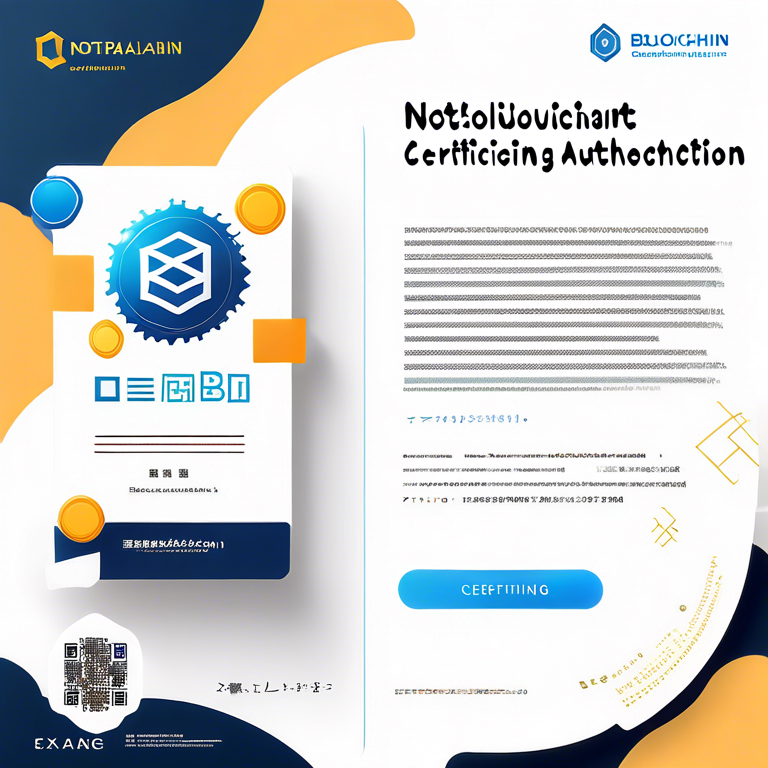In this article, we will explore the concept of blockchain notarization certification, its advantages, and how it is transforming the landscape of document authentication and integrity verification. The rise of blockchain technology has provided a secure, transparent, and efficient solution for various applications, including notarization.

Understanding Blockchain TechnologyExchange
Blockchain is a distributed ledger technology that records transactions across multiple computers. This technology ensures that once data is recorded, it cannot be altered retroactively without the consensus of the network. Each block in the chain contains a timestamp and a link to the previous block, forming an immutable chain of information. This characteristic of blockchain ensures transparency and enhances security in various applications, including notarization.
In traditional notarization, a notary public acts as a trusted witness to the signing of a document, verifying the identities of the parties involved. However, this process can be susceptible to fraud and requires timely access, which is not always feasible. With blockchain notarization, documents can be timestamped and stored on a blockchain, creating a permanent and tamper-proof record that can be accessed anytime, anywhere, thereby enhancing trust and reliability in document authenticity.
Benefits of Blockchain Notarial Certification
One of the primary advantages of blockchain notarization is enhanced security. The decentralized nature of blockchain means that data is not stored in a single location, reducing the risk of unauthorized access or data loss. Moreover, documents notarized on a blockchain are immutable, meaning once they are recorded, the information cannot be changed or deleted, providing a high level of assurance for all parties involved.
Another significant benefit is efficiency. Traditional notarization can be a cumbersome process involving physical presence and extensive paperwork. With blockchain, the notarization can be completed digitally, saving time and resources. This efficiency is crucial in a world that is increasingly moving towards digital solutions, especially in business transactions, legal agreements, and property transfers.
Furthermore, blockchain notarization simplifies verification. Instead of relying on a notary’s word, all parties can independently verify the authenticity of a document through the blockchain. This aspect not only improves trust among parties but also simplifies processes in situations where verification is required, such as during audits, legal disputes, or compliance checks.
Implementing Blockchain Notarization in Various Sectors
Blockchain notarization has applications across multiple sectors, including real estate, finance, and legal. For instance, in real estate transactions, blockchain notarization can facilitate the secure transfer of property titles and ensure that all documents are authentic and up to date. This application can expedite the buying and selling process, reduce fraud, and eliminate lengthy verification processes.
In the financial sector, institutions are increasingly adopting blockchain technology for various functions, including notarizing contracts and agreements. This adoption not only enhances security but also allows for real-time tracking and auditing of financial documents, leading to higher compliance and lower risks of disputes.
The legal industry is also witnessing the transformative impact of blockchain notarization. Law firms can utilize this technology to notarize contracts and agreements, ensuring their authenticity and reducing the potential for litigation. Moreover, the ease of accessing notarized documents on the blockchain can streamline legal processes and improve overall efficiency.
In conclusion, blockchain notarization certification is revolutionizing the way we authenticate documents, providing a secure, efficient, and transparent solution. As more sectors embrace this technology, we can expect significant improvements in the reliability and integrity of document management.